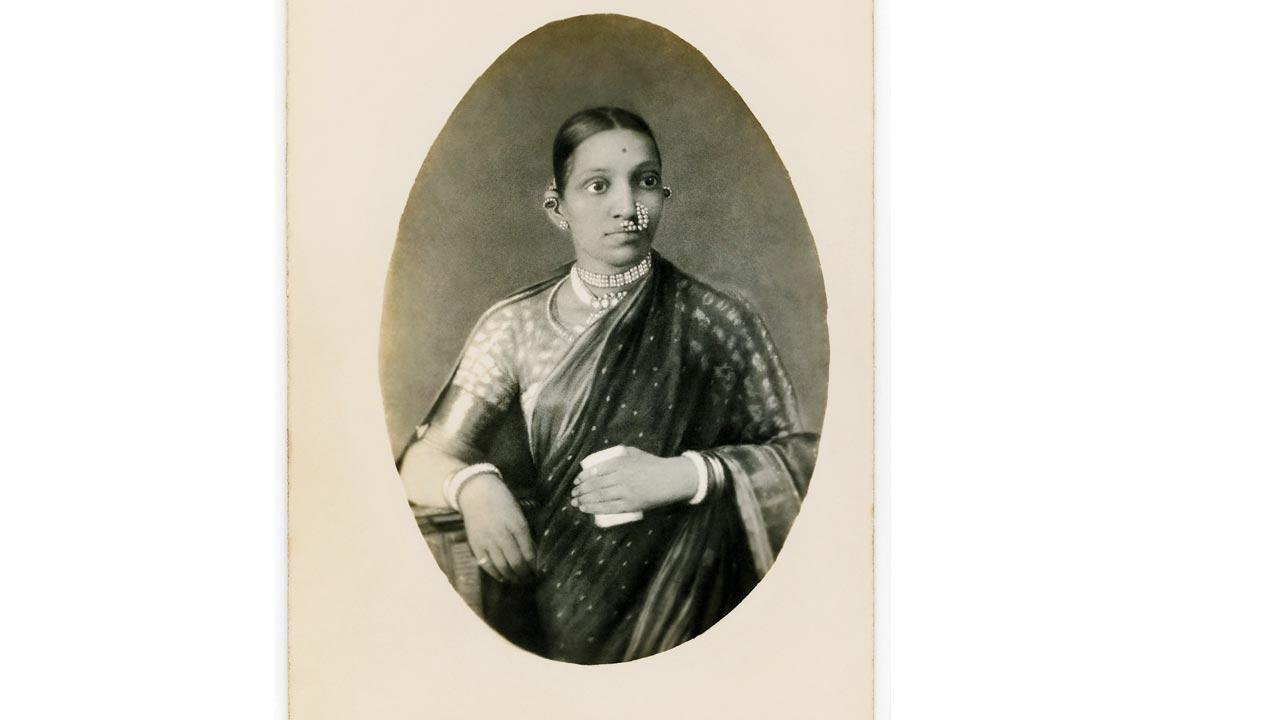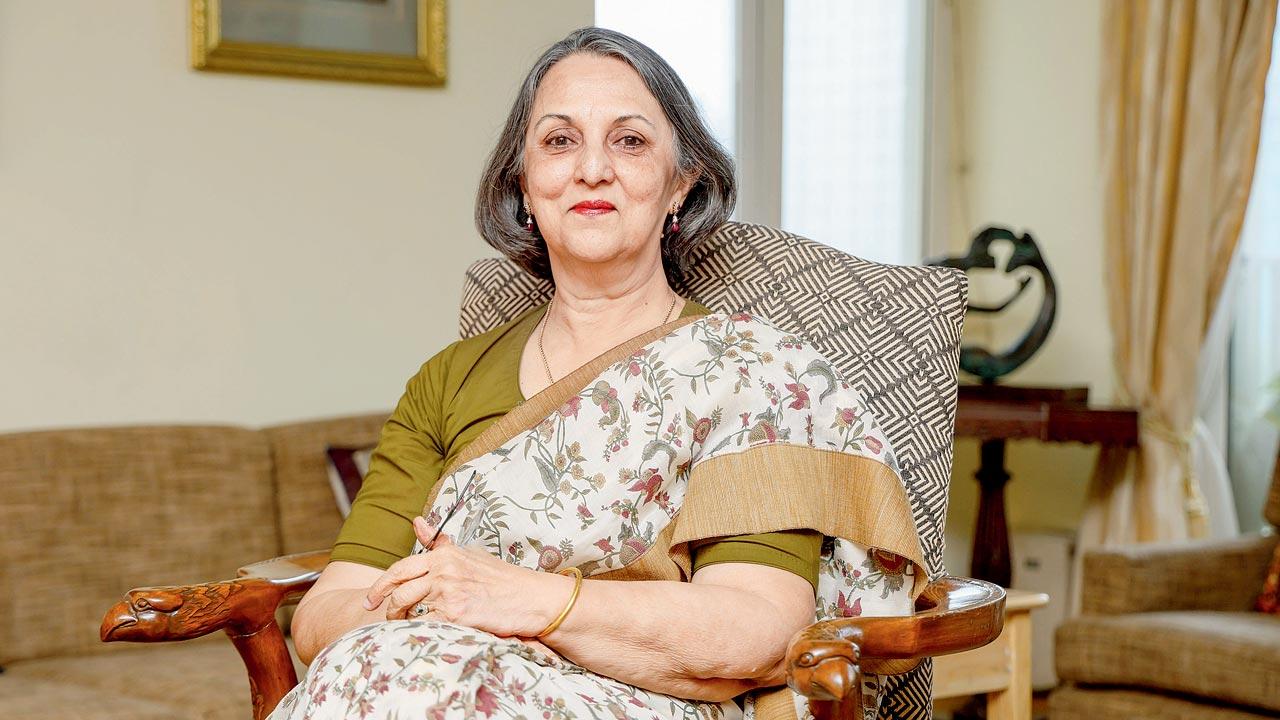A granddaughter resurrects the stories of one of Maharashtra’s most prolific female writers from early 20th century who called out child marriage and regressive ritualism, and whose emancipation lay buried in a bookshelf

Laxmibai Abhyankar was a prolific writer, poet, public speaker and ‘nav-matvadi’ and was probably among the first woman whose short stories and poems were published in popular Marathi magazines in the early 1900s
Some stories begin with a discovery. For Delhi-based lawyer Dr Ranjana Kaul it was when she chanced upon her grandmother’s heirloom. In 1967, during a visit to her ancestral home in Sangli, Kaul, then 17, remembers finding the Sadhya Sthithi-Sansaratilkahi Chitre, a slim booklet gathering dust on a shelf inside a wall niche. “It stood out, because it was half the size of the other books,” says Kaul. “When I leafed through the yellowing pages, I found the name ‘Laxmi Tanaya’ in Devnagiri.”
Curious, Kaul took the book to her father; he told her the “unexpected and compelling” story of her grandmother Laxmibai Abhyankar, who wrote in Marathi under this pen name in the early 1900s. At the time, Laxmibai, whom Kaul addressed as mothi aai, was ailing but still the matriarch helming affairs at Abhyankar house in Sangli.
Laxmibai died on September 20, 1969, but her legacy as a writer, poet, public speaker and ‘nav-matvadi’ (new thinker), would slowly unravel before her granddaughter, who having been raised in Delhi, started taking Marathi lessons after she moved to Pune, to teach at the Wadia College.
 Dr Ranjana Kaul, Abhyankar’s granddaughter didn’t know until she was 17 that her mothi aai was a writer and new thinker. Pic/Nishad Alam
Dr Ranjana Kaul, Abhyankar’s granddaughter didn’t know until she was 17 that her mothi aai was a writer and new thinker. Pic/Nishad Alam
Nearly 55 years on, Kaul has translated into English her original and probably only surviving text. The Stepmother and Other Stories (Ratna Books) comprises eight shorts that travel over a century back in time, into urban and rural Maharashtrian households, where seeds for feminism were just being sown. “And not surprisingly, the concerns still remain the same,” feels Kaul.
Laxmibai, says the author in the introduction to her book, “was inspired and moulded by her family circumstances”. She was the only daughter of Rao Bahadur Laxman Gopal Deshmukh, among the first Indians from the Bombay Presidency to join the Indian Covenanted Service; he was the youngest son of the ‘Lokhitvadi’ (social reformer) Gopal Hari Deshmukh (1823–1892). Named Krishna at birth, she spent her early years in Hyderabad (Sindh), then in Bombay Presidency, where her father was posted as assistant collector. She was deeply influenced by her grandfather, who was among the early pioneers of the Nav-matvadi social movement, which “rejected traditions and prevalent customs subjugating women, after subjecting them to rigorous rationale and scientific criteria”. Her marriage at the age of 14 to lawyer Ganesh Raghunath Abhyankar (1875–1935), who also pioneered the Sansthani Praja Parishad movement in the Deccan to demand fundamental rights and representative government in the princely states, proved to be serendipitous, as it enabled her to nurture her writing aspirations. According to Kaul, she was probably the first woman whose short stories and poems were first published (1900–1914) in popular Marathi magazines such as Manoranjan, Karmanuk and Vividhyanvistar. Her articles and campaigns against de-humanising rituals and traditions, especially of tonsuring widows, invited sharp criticism from the likes of Prabodhankar Thackarey.
When Kaul was born, Laxmibai had already withdrawn from public life. “[But] She had this imperious personality that commanded respect. While she was very fond of me, I don’t think I would ever dare to misbehave in front of her,” says Kaul.
The translation is a result of long years of research. Kaul wanted to be meticulous about the social conventions, conversations and circumstances that men and women in that era were invested in.
“There were three schools of reform that emerged post the late 1800s—first, was the one that demanded political and social reform leading to freedom of the country; the second school was headed by the likes of Jyotiba and Savitribai Phule who believed in emancipation through English education, and the third, wanted political reform and freedom, but didn’t support social transformation,” Kaul explains, adding, “The latter certainly didn’t believe in emancipation of women.”
Through strong, empowered, sometimes selfish, and even meek characters, Laxmibai navigates social ills, be it child marriage, ostracisation of widows, denial of education to girls, discrimination between daughters and daughters-in-law. On the latter, she writes in a short story: “We interpret ‘propriety’ as ‘slavery’ when defining our daughter-in-law’s conduct. A young girl whom we bring into our home from a different family, and who each of us ought to treat with greater love than our own daughter, is instead subjected to harsh discipline that has no justification. We magnify her every action, her every mistake, real or imagined, as an excuse to constantly maltreat her. How should one describe such behaviour by a mother-in-law?” The book is peppered with wise gems, where Laxmibai’s omnipresent voice suddenly shines through between the storytelling, to advise the reader or make them introspect. “The style in which she writes... when I first read it, I felt like she was talking to me,” says Kaul, who has served as member of Delhi State Commission for Women. “And her characters were so universal. They seemed like people whom I knew... I had seen and interacted with people who fitted those descriptions. I could recognise them.”
Kaul says that while the book harks back to the pre-colonial era, when India was still struggling to come into its own, the same challenges continue to grip the country. In 1987, when Kaul was working as a journalist, she had been commissioned to travel to Deorala, in the Sikar district, Rajasthan, to report about a case of sati. “The woman [Roopkuvarba Kanwar] had immolated herself on her husband’s pyre; it had created a huge furore and I was asked to go and find out what exactly happened,” she says. A man from Jaisalmer had accompanied Kaul to take her to the area where the incident took place. “He had done a course in hospitality from Switzerland. When I asked him about his opinion on the case, he said, ‘Madam, woh baithi hui thi, aur phir ek dam se kamre ka darwaza khula, aur uski shaadi ka joda uske saamne aa gaya; usne woh dharan kar liya aur woh sati ma ban ke chali gaayi,” she remembers. “This India is [behind by] many, many centuries, and the emancipation of women and the underprivileged is still an unfinished job.” Laxmibai’s stories that’s why, still matter.
 Subscribe today by clicking the link and stay updated with the latest news!" Click here!
Subscribe today by clicking the link and stay updated with the latest news!" Click here!










